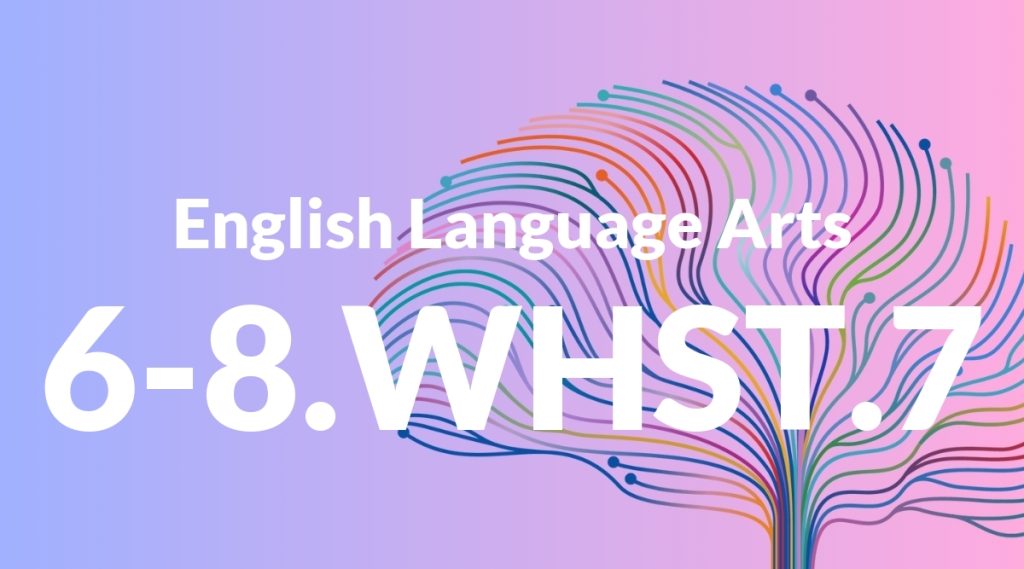Standard: 6-8.WHST.7 – Conduct short research projects to answer a question (including a self-generated question), drawing on several sources and generating additional related, focused questions that allow for multiple avenues of exploration.
Grade level: Grade 6-8
Subject: English Language Arts
Domain: Writing: History, Science & Technical Subjects
Teacher Overview
This standard focuses on developing students’ ability to conduct short research projects by answering questions, including those they generate themselves. It emphasizes the importance of using multiple sources and generating related questions for a more comprehensive understanding. Mastering this standard prepares students for more complex research tasks in higher grades. Students should have foundational research skills, such as finding reliable sources and formulating clear research questions.
After mastering this standard, students will be able to tackle more complex research projects, synthesize information from diverse sources, and present their findings effectively.
Common Misconception 1
A common misconception is that one source is enough for a research project. This is incorrect because relying on a single source can lead to a narrow or biased perspective.
Intervention 1
An effective intervention is to have students practice cross-referencing information from multiple sources to build a more nuanced understanding.
Common Misconception 2
Another misconception is that once the main research question is answered, the project is complete. This is incorrect because ongoing questioning can lead to deeper insights and more thorough research.
Intervention 2
Encourage students to generate new questions throughout their research process, fostering a mindset of continuous inquiry.
Prerequisite Knowledge
Students should have basic research skills, including how to find and evaluate sources, and an understanding of how to formulate a clear research question.
Subsequent Knowledge
Students will develop advanced research skills, including synthesizing information from multiple sources, creating comprehensive research reports, and presenting their findings effectively.
Instructional Activities
- Have students conduct a mini-research project on a historical event, using at least three different sources.
- Assign a scientific phenomenon for students to investigate and present their findings.
- Ask students to explore a technical subject, generate related questions, and share their research process.




